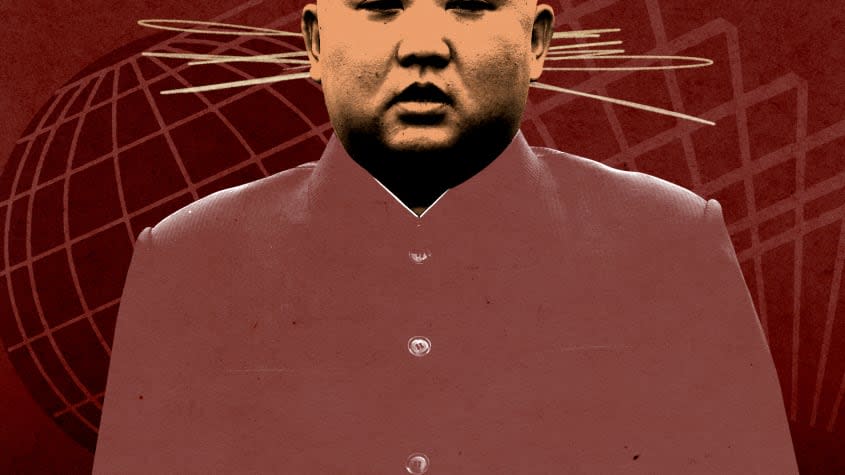One more madman to usher in apocalypse?

Every single one of us is, in a sense, insane. We face terrible threats every day, yet manage to go about our lives as if they don't exist. We drive (38,000 deaths a year). We walk (6,700 pedestrian deaths). We just hang out on the planet, emitting (150,000 deaths from climate change).
And every day is a new chance of nuclear war. The threat ebbs and flows with the headlines and the madmen behind them.
If it's true that peace in Ukraine is possible, the threat of nuclear war may have once again receded. Yes, kids, we can all get up from under our desks and sleep tonight in the way we have since the Cold War ended 30 years ago.
Or maybe we can't, as the list of countries that could target New York City and Washington, D.C., with nuclear-tipped missiles may have just grown by one. North Korea is claiming a successful test of the Hwasong-17 intercontinental ballistic missile that would put those cities in range.
I say "claims" because there are counter-claims that what actually launched was a dolled up version of an older missile Kim Jong Un is trying to pass off as the real thing. Here's what matters, though: This test may have failed, but the one after it, or the one after that will succeed. And for those of us living in those cities, that means we have one more madman ready to usher in the apocalypse.
Of course, there's a broad sense in the U.S. that Washington and New York aren't really America. I might argue otherwise, but it really doesn't matter: Wherever you're reading this, if they can hit my home, they can hit yours, too.
It's all madness, and it has been since the Soviet Union developed the bomb in 1949, just a few short years after the United States killed hundreds of thousands of people at Hiroshima and Nagasaki. Up until that point, the U.S. alone could unleash death in a way that could still feel escalatory after a war that killed as many as 65 million people. After the USSR's successful tests, the two sides split the world between them, then tried to keep from pushing the button as smaller fights flared.
U.S. allies, formal and just friendly, also built bombs: Britain, France, South Africa. Then, in 1964, China — a major power with its own interests and alliances of which no one could quite be sure — joined the club. China has been slow to reach the madness level of the U.S. and Russia, each with strategic nuclear weapons numbering in the thousands. But Beijing's stockpile is in the hundreds and may soon have the chance to grow. China also has some terrific rocket technology. Hitting the East Coast of the U.S. would be a dawdle.
Shhh! Israel has the bomb, too, but pretends that all that's going on at Dimona is some nice peaceful research, maybe a little power generation. Their regional rockets can certainly take out local enemies in Iran, Iraq, Syria, and the like. Considering shifting alliances in the region and U.S. and Russian allyship scattered all over the area, an Israeli launch could easily trigger a larger exchange. And then, once again, New York, Washington, and the rest of the United States are in play.
India — not an American enemy, but not a friend, either — is a nuclear club member too, and one with the capacity to send bombs into orbit. The likeliest target of Indian nukes is Pakistan, and Pakistan feels the same way about India. Any exchange between those two, with their complex relationships with the U.S. and Russia, could also lead somewhere nobody wants to go. Even if no other countries joined an India-Pakistan atomic war, we'd all suffer the literal fallout, including here in the States.
None of this even touches on the bombs that supposedly can't hit New York and Washington, the "small" tactical weapons intended to blow apart armies, rather than cities, which I've written about before. But no one knows what the next step will be after the first tactical nuke is used. The strategy that follows that desperate act is secret.
Have I mentioned this is madness?
And what can you do about it?
Bupkis.
Carl Sagan, scientist, educator, and anti-nuclear activist said it well: "Every thinking person fears nuclear war, and every technological state plans for it. Everyone knows it is madness, and every nation has an excuse."
You may also like
Ukraine's ambassador tells U.N. the 'demilitarization of Russia is well under way'
Oscars co-host Amy Schumer says she's 'triggered and traumatized' by Will Smith's slap
Roughly 6 in 10 Republicans, 4 in 10 Democrats say they've had COVID

